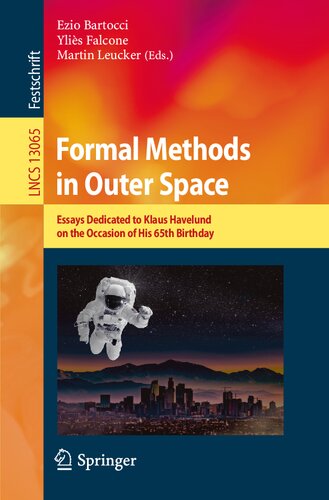

Most ebook files are in PDF format, so you can easily read them using various software such as Foxit Reader or directly on the Google Chrome browser.
Some ebook files are released by publishers in other formats such as .awz, .mobi, .epub, .fb2, etc. You may need to install specific software to read these formats on mobile/PC, such as Calibre.
Please read the tutorial at this link: https://ebookbell.com/faq
We offer FREE conversion to the popular formats you request; however, this may take some time. Therefore, right after payment, please email us, and we will try to provide the service as quickly as possible.
For some exceptional file formats or broken links (if any), please refrain from opening any disputes. Instead, email us first, and we will try to assist within a maximum of 6 hours.
EbookBell Team

4.1
100 reviewsAfter work as a software programmer in various Danish companies, Klaus has held research positions at various institutes, including the Danish Datamatics Center, the Ecole Polytechnique, LIP 6 lab in Paris, Aalborg University, and NASA Ames. Since 2006 he has been working in NASA’s Jet Propulsion Laboratory (JPL), the federally funded center managed by Caltech whose primary function is to construct and operate planetary robotic spacecraft. His professional awards include the Turning Goals Into Reality engineering innovation award, the Outstanding Technology Development award, and the JPL Mariner, Ranger, Voyager, and Magellan awards.
Klaus has provided constant and generous service to the formal methods community by organizing, participating in, and chairing numerous committees. His academic awards include the 2020 SIGSOFT Impact Paper Award, the RV 2018 Test of Time award, and the ASE 2014 and ASE 2016 Most Influential Paper awards. His research activities have generated more than 100 publications with more than 100 collaborators, cited over 12,000 times.
The book title reflects Klaus’s main research and engineering focus throughout his career: formal methods, often applied at NASA. The contributions, which went through a peer-review process, cover a wide spectrum of the topics related to his scientific interests, including programming language design, static analysis, runtime verification, dynamic assurance, and automata learning.